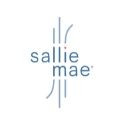New York Chiropractic College (NYCC) Admission Requirements 2022
2360 State Route 89
4
Private Not-For-Profit
#N/A
100%
Acceptance Rate
N/A
SAT Range
N/A
ACT Range
The application and admission process at New York Chiropractic College is quite simple and it includes a total of 4 steps that are as follows: Step 1 that a prospective candidate needs to complete: Submitting the application A candidate is first required to apply to the college as part of the admission procedure at New York Chiropractic College. To apply to the university, interested candidates can either call the college at (315) 568-3000 or do it through online mode to secure admission. Alternatively, they can also directly visit the university's admissions office at 2360 State Route 89, Seneca Falls, New York 13148-0800. They can contact the New York Chiropractic College admissions office by phone as well. Step 2: Acceptance by NYCC Once an applicant has submitted their form and deposited the enrollment fee, they would be required to submit certain documents, to receive an admission decision. For New York Chiropractic College, it is suggested that an applicant submits the following documents: Essay: Sometimes known as the personal statement, the essay submitted by an applicant offers them a unique way to showcase their achievements and personality. It is advised that applicants include personal experiences and anecdotes. Transcripts: Submitting the necessary high-school and college transcripts is an important part of the evaluation process. An applicant can use Parchment (or similar platforms) to submit the same. Official Test Scores: It is not a mandatory requirement and not all students submit their ACT and SAT scores. However, by submitting these official scores, a candidate can make a stronger claim for securing a seat at New York Chiropractic College. The college may request additional documents or information from the applicants once the reviewing process is over. Step 3: Confirm Your Attendance The candidates have to confirm their attendance to New York Chiropractic College to complete the third step. Additionally, they will be required to complete their Financial Check-In process and select their housing as well. Review and verification of Summary of Accounts and Financial Aid (scholarships, fees, and tuition costs), choosing a lodging option, selecting a payment plan, and making the first payment are some of the processes included in the admission at the varsity. Candidates will be required to complete the Math and English assessments before proceeding to register for classes. Step 4: Register for Classes Registration for courses will be the next step once all the processes mentioned above are completed.
SAT scores have been considered a good way to help colleges interpret the students' overall academic performance. But it is important to note that there is no concrete information regarding the average SAT score or similar requirements for admission to New York Chiropractic College. Notably, at the university, SAT scores are not one of the mandatory requirements to get an admission.
| Minumum Credit Score | Apply in as little as | Variable APR | Fixed APR | ||
|---|---|---|---|---|---|
 | Not Available | 15 minutes or less | 2.95 | 4.74 | View disclosures |
 | 620 | 2 minutes | 5.38%-16.99%1 | 4.43%-16.99%1 | View disclosures |
 | Not Available | 15 minutes | 1.13% - 11.23%¹ (with autopay) | 3.50% - 12.60%¹ (with autopay) | View disclosures |
New York Chiropractic College does not put much emphasis on the ACT scores of the applicants. However, the candidates can submit their ACT scores for securing admission to the university. There is no official data about the minimum requirements concerning the ACT scores that has been made publically available.
Grade Points Average (GPA)
3
In order to get accepted at most colleges/universities, a high GPA is often required. Having a good GPA generally helps a candidate stand out from the crowd and also improves their chances to secure admission into any college/university. However, New York Chiropractic College does not follow this pattern as it does not consider higher GPAs mandatory for admission. Candidates applying to New York Chiropractic College should also have a good idea about the requirements for admission, including the necessary documents, and all the information that is considered while making admission decisions.
What Really Matters When Applying
High School GPA
Required
High School Rank
Recommended
High School Transcript
Required
College Prep Courses
Considered but not required
SAT/ACT
Neither required nor recommended
Recommendations
Considered but not required
At NYCC, every degree comes with the commitment that students will get both classroom knowledge plus applied experiences so they can practice their life’s work with conviction.
Diverse degree offerings and unique clinical training opportunities ensure that graduates are fully prepared to succeed in the collaborative practice model that is the future of healthcare delivery. Hence, in selecting students for admission, it looks for the potential for academic success, the capacity and desire to learn, and evidence that the individual will thrive in a constantly evolving academic environment. The academic programs at the university are aligned into its three schools and colleges.
The admission requirements in the university vary explicitly according to these different colleges and types of degrees offered. The various admission requirements are explained below.
New York Chiropractic College will admit candidates into the Doctor of Chiropractic program whose goals, abilities, and character are consistent with the program's mission.
The applicants should have completed the equivalent of three academic years of undergraduate study (90 semester hours) at an institution(s) accredited by an agency recognized by the U.S. Department of Education or an equivalent foreign agency with a grade point average in these designated 90 hours of not less than 3.0 on a 4.0 scale.
The 90 hours will include a minimum of 24 hours in life and physical science courses. These science courses will provide an adequate background for success in the program, and at least half of these courses will have a substantive laboratory component. The candidate's undergraduate preparation should also include a well-rounded general education program, examples of which consist of the humanities, social sciences, fine arts, business management, and other course work deemed relevant, to achieve success in the curriculum.
Candidates who have a grade point average of 2.75 to 2.99 in the designated 90 semester credit hours along with a component of life and physical science course work may be considered for admission under NYCC's alternative admissions criteria consistent with the Council of Chiropractic Education's guidance. Students admitted under these criteria will be provided an individual education plan designed to optimize their opportunity for success.
Applicants should also be aware that individual state licensing boards may have slightly different educational requirements for licensure.
All science prerequisites should have been completed within ten years of the matriculation date at NYCC.
NYCC evaluates each case individually, and if necessary, may require refresher courses to help ensure the candidate’s preparation for academic success.
For science prerequisites, certification of the grade and of the laboratory is required.
All college credit earned via Advanced Placement (AP) courses is acceptable toward meeting the entrance requirements, providing the credit was granted by an accredited, degree-granting institution.
Up to 20 semester hours of a candidate’s pre-professional requirements can be earned through the College Level Examination Program (CLEP) and certain other college proficiency examinations.
These credits must be granted by an accredited, degree-granting institution.
None of the science prerequisites can be satisfied through examination programs.
New York Chiropractic College (NYCC) is committed to the achievement of academic excellence, leadership, and professional best practices. In support of NYCC's vision, a candidate for the Doctor of Chiropractic degree program must have abilities and skills in five areas: observation and participation; communication; motor; intellectual conceptual, integrative and qualitative; and behavioral and social. These guidelines specify the attributes that NYCC faculty consider essential for completing these degree programs. Because these standards describe the essential functions that students must demonstrate to meet the requirements of a first professional degree program, they are pre-requisites for matriculation, continuation, and graduation.
NYCC is fully committed to equal opportunity in educational programs for all otherwise qualified individuals without regard to handicap or disability, in accordance with the Americans with Disabilities Amendments Act of 2008 and Section 504 of the Vocational Rehabilitation Act of 1973. In addition to meeting academic standards, candidates for these programs must also meet the following technical standards with or without reasonable accommodations throughout the full course of their education at NYCC.
These standards ensure patient safety and that all candidates are otherwise qualified. Reasonable accommodations can be made in some of these areas provided that they do not require fundamentally altering the applicable degree program. Requests for reasonable accommodations will be reviewed on a case-by-case basis; however, candidates for admission and enrolled students should be able to perform in a reasonably independent manner. The use of an intermediary that would, in effect, require a student to rely on someone else's power of observation and/or communication will not be permitted. NYCC reserves the right to rescind admission or continuation to any candidate that is unable to meet all technical standards with reasonable accommodations. Any candidate should evaluate his/her ability to meet all technical standards prior to submission of an application.
In addition to meeting NYCC’s current entrance requirements, transfer applicants must have met the following NYCC entrance requirements in force at the time they enrolled at the health-profession institution from which transfer is sought:
Evidence of proficiency in the subject matter will be required for course work from professional schools in countries that do not have accreditation systems equivalent to that of the United States.
Course work to be transferred must have been completed within five years of the transfer date.
Exceptions may be made for candidates holding a first professional degree or an academic graduate degree in related discipline from an accredited institution.
To be considered for transfer credit, a course must be equivalent in content and credit hours to the NYCC course for which credit is sought.
The student must have earned a grade of “C” or higher, and not have used the course to meet entrance requirements.
Basic-science academic courses must have been taken at the professional or graduate level.
Transfer applicants must complete all application procedures and must furnish official transcripts of graduate or professional schools attended.
Transfer applicants must obtain and complete an application for transfer credit and wait for an evaluation.
An offer of transfer credit, if accepted by the candidate, is not subject to further negotiation after transfer to NYCC.
In consultation with appropriate department heads and faculty, the appropriate academic dean or director may grant transfer credit under exceptional or unusual circumstances that vary from the parameters defined above.
The admission requirements at the School of Health Sciences & Education differ according to the degrees offered by it. These are explained in detail below.
Applicants must meet at least one of the following four criteria:
Have earned a professional degree (MSN, MD, DO, DC, DVM, or other similar advanced clinical degree) awarded by an accredited institution; or
Have earned a master's degree in a related field from an accredited institution; or
Demonstrate significant anatomy and physiology teaching experience in the undergraduate college/ university setting; or
Demonstrate successful completion of the anatomy and physiology course sequence of an advance clinical degree; or
Demonstrate successful completion of a graduate certificate program in anatomy and physiology (minimum 12 credits).
An earned cumulative grade point average of 2.5 or higher on a 4.0 scale is desired.
To be considered for transfer credit:
Course work to be transferred must have been completed within five years of the transfer date.
A course must be equivalent in content and credit hours to the NYCC course for which credit is sought.
The student must have earned a grade of "C" or higher, and not have used the course to meet entrance requirements.
Courses must have been taken at the professional or graduate level.
Applicants must obtain and complete an application for transfer credit and wait for an evaluation.
An offer of transfer credit, if accepted by the candidate, is not subject to further negotiation after transfer to NYCC. In consultation with appropriate department heads and faculty, the appropriate academic Dean or Director may grant transfer credit under exceptional or unusual circumstances that vary from the parameters defined above. Under no circumstances will credit be given for life experience. Under no circumstances can more than 50% of credits be accepted for transfer.
The field of Applied Clinical Nutrition draws students of all ages and from all walks of life who share an interest in a holistic approach to healthcare. In assessing applicants, NYCC looks for individuals who demonstrate the potential to succeed in NYCC's rigorous master's degree programs in Applied Clinical Nutrition, as well as a commitment to helping people through a healing profession. Successful candidates exhibit strong communication skills, integrity, and professionalism.
Applicants are required to show proof of successfully completing 90 semester hours (136 quarter hours) of college credit, including:
Nine credits (9) of bioscience course work prior to matriculation, from an accredited, degree-granting institution, with a grade of "C' or, better earned in the prerequisite bioscience course(s).
A cumulative Grade Point Average (GPA) of 2.5 or higher on a 4.0 scale is desired for pre-professional college study.
All college credit earned via Advanced Placement (AP) courses is acceptable toward meeting the entrance requirements, providing the credit was granted by an accredited degree-granting institution
Up to 20 semester hours of a candidate's pre-professional requirements can be earned through the College Level Examination Program (CLEP) and certain other college proficiency examinations.
These credits must be granted by an accredited degree-granting institution
None of the science prerequisites can be satisfied through examination programs
To be considered for transfer credit:
Course work to be transferred must have been completed within five years of the transfer date.
A course must be equivalent in content and credit hours to the NYCC course for which credit is sought.
The student must have earned a grade of "C" or higher, and not have used the course to meet entrance requirements.
Courses must have been taken at the professional or graduate level.
Applicants must obtain and complete an application for transfer credit and wait for an evaluation.
An offer of transfer credit, if accepted by the candidate, is not subject to further negotiation after transfer to NYCC. In consultation with appropriate department heads and faculty, the appropriate academic Dean or Director may grant transfer credit under exceptional or unusual circumstances that vary from the parameters defined above. Under no circumstances will credit be given for life experience. Under no circumstances can more than 50% of credits be accepted for transfer.
Application Deadline
FALSE
Application Fee
$60
Early Decision Deadline
NA
Early Action Deadline
NA
Offer Action Deadline
FALSE
Offers Early Decision
FALSE
Application Website
www.nycc.edu/apply
Accepts Common App
No
Accepts Coalition App
NA
Every college and college has its own application deadlines, but they fall around the same time. Early applicants (early action, early decision, or single-choice early action) generally need to get their applications in November which varies for different universities. In the due course of scrutinizing applications, the varsity also considers various factors to make error-less decisions. Fall applications, which are rather preferred by the students, start in September and usually go on till April. Though the final deadline is in April, a deadline has been set in September as well. As the varsity also provides scholarships, those students who wish to be considered for such grants must apply by September, i.e., before the April-deadline, so that the scrutinizing processes can be carried out properly. These scholarships will help the students fund their education and also help them be a part of other initiatives hosted by the sponsoring team.
| Women | Men | Total | |
|---|---|---|---|
| Applied | 2,307 | 1,876 | 4,183 |
| Accepted | 2,307 | 1,876 | 4,183 |
| Acceptance Rate | 100% | 100% | 100% |
| Enrolled | 2307 | 1876 | 4183 |
| Percentage of admitted who Enrolled (Admission Yield) | 53% | 47% | 100% |
Applied
Women
2,307
Men
1,876
Total
4,183
Accepted
Women
2,307
Men
1,876
Total
4,183
Acceptance Rate
Women
100%
Men
100%
Total
100%
Enrolled
Women
2307
Men
1876
Total
4183
Percent of Admitted Who Enrolled (Admission Yield)
Women
53%
Men
47%
Total
100%
AP Credit
Yes
Dual Credit
Implied No
Credit for Life Experiences
Yes
Most universities in the US incentivize students by helping them obtain college credits through certain courses, which are available in high school. Some of such popular programs available for the students include AP Credit, CLEP (Credit for Life Experiences), and Dual Enrollment (also known as Dual Credit). Different colleges have different policies regarding such credits. These programs are designed to provide various benefits to students, such as a shorter time to complete a degree, increased chances of finising a degree, and a higher GPA. Students who are interested in these courses and want to avail CLEP and AP credits can simply visit collegeboard.org and request to submit the scores to any college of their choice.